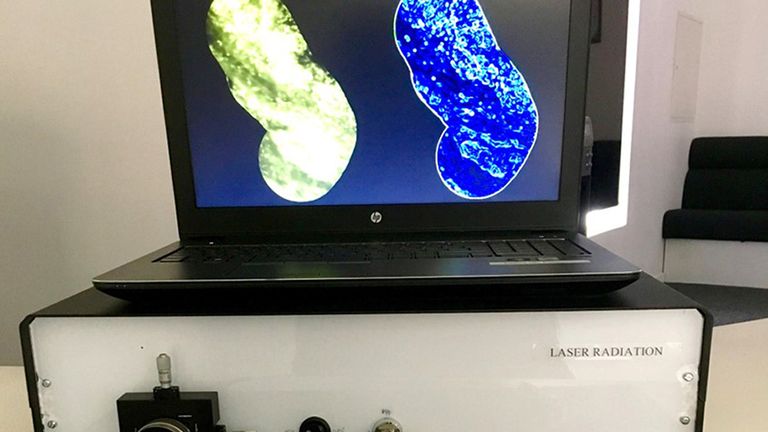Tiny microscopes that can be manipulated through small spaces in the body during surgery could speed up breast cancer treatment and help reduce NHS waiting lists, scientists say.
Experts at Imperial College London have developed an endoscope with a diameter of less than 1mm – about the width of 25 human hairs – designed to be inserted into the body to provide a view of tissues and organs.
The team says the device is capable of producing images from inside tissue at “unprecedented speed” — up to 120 frames per second.
The hope is that the endoscopic microscope, developed by Dr. Khushi Vyas and colleagues at the university, will help surgeons identify cancer cells as small as one hundredth of a millimeter faster than traditional methods.
This will help reduce the need for follow-up surgery to remove cancer cells that have previously evaded detection, the team said.
read more:
Most women fail to detect symptoms of ‘sneaky’ aggressive breast cancer, study finds
Cancer vaccine may be available by 2030, say scientists behind COVID jab
Couch potatoes ‘more prone to breast cancer’, experts warn
The instrument will also aid in breast-conserving surgery, in which surgeons will remove cancer At the same time preserve as much normal breast as possible.
Up to 20% of currently treated patients require such surgery.
The development of the endoscopic microscope was supported by the Engineering and Physical Sciences Research Council (EPSRC), part of Research and Innovation UK.
“Available in five years”
Dr Kedar Pandya, EPSRC Inter-Committee Programme Director, said: “By reducing the time it takes to identify cancer cells and improving the accuracy of imaging, the endoscope developed by Dr Vyas and his team could benefit patients and the NHS by reducing waiting lists .”
The aim, he added, is to advance clinical trials with a view to becoming available in about five years.
The researchers have used their system in preliminary studies of human cancer tissue and are now testing the use of laboratory samples of cancer tissue by surgeons and pathologists.
For more on science and technology, explore the future with Sky News at Big Ideas Live 2022.
Learn more and book tickets here

